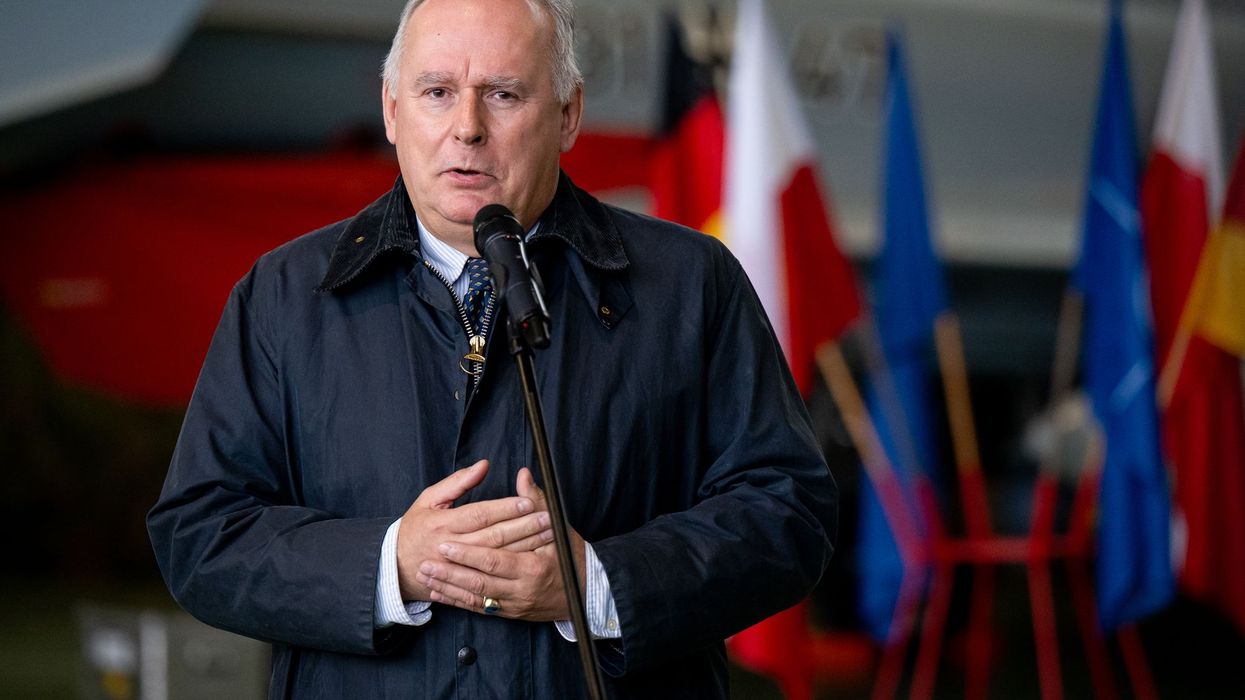November, 19 2010, 02:32pm EDT

Chemical Lobby Gets Its Way in US Senate
Last-Minute Calls to Republicans Scuttle Bi-Partisan Agreement to Ban BPA from Baby Bottles, Sippy Cups
WASHINGTON
For several years now, Environmental Working Group (EWG) has been warning of the risks associated with bisphenol A (BPA) - especially the BPA in baby bottles, sippy cups and cans of infant formula. EWG has also been a leader in trying to get state and federal agencies to regulate this hazardous chemical.
Thanks to the efforts of Sen. Dianne Feinstein (D-Calif.), there was briefly a deal this week - after months of negotiations - to include some regulation of BPA in a food safety bill that will probably pass the Senate soon after Thanksgiving. The deal, agreed to by leading Republicans and trade associations, including the Grocery Manufacturers Association, would have banned BPA in baby bottles and sippy cups in six months, directed FDA to finalize its assessment of the safety of BPA by December 2012 and protected the right of states to take even stronger action.
Then the American Chemistry Council (ACC) swooped in with last minute objections. The Council's lobbyists whispered in enough Republican senators' ears, and the agreement was scrapped. The chemical makers' trade group has spent millions of dollars over the last few years to fight regulation of BPA across the country.
Despite the Council's richly funded efforts, environmental and health advocates have had successes on the BPA front. At least seven states have now passed laws to regulate the chemical in one way or another. Canada has declared BPA toxic and banned it in baby bottles; Denmark and Germany have also acted.
And governments aren't the only ones taking action - companies including Philips Avent, Disney First Years, Gerber, Dr. Brown, Playtex and Evenflow have agreed to stop making baby bottles with BPA. Earlier this year General Mills announced that its next harvest of Muir Glen Tomatoes will be packed in BPA-free cans, and Heinz has removed BPA from cans it sells in Australia, the United Kingdom and Ireland. Major retailers including CVS, Kmart, Walmart, Toys R Us and Babies R Us have taken BPA products off their shelves or are in the process of doing so.
"If all these governments, companies and retailers can get by without BPA, why does the leading industry trade group continue to insist it's needed? Unfortunately, the chemical industry is more concerned with protecting its bottom lines than the public health," said EWG Senior Legislative Analyst Jason Rano.
On Wednesday night (Nov. 17), Senator Feinstein took to the Senate floor to excoriate the American Chemistry Council. She closed by saying, "The battle is joined, and once I start I do not stop... we will fight another day."
"We echo those sentiments," Rano added. "We're disappointed, but we won't be deterred in our efforts to get this dangerous chemical off the market."
The many groups that worked tirelessly on this effort along with EWG include the Natural Resources Defense Council (NRDC), Consumers Union, U.S. PIRG, and Breast Cancer Fund.
The Environmental Working Group is a community 30 million strong, working to protect our environmental health by changing industry standards.
(202) 667-6982LATEST NEWS
Rights Group Condemns 'Terror' and 'Lawlessness' Spread by Trump's Masked Thugs
“Allowing masked, unidentified agents to roam communities and apprehend people without identifying themselves erodes trusts in the rule of law and creates a dangerous vacuum where abuses can flourish."
Dec 18, 2025
As masked government agents—an oft-employed terror tool of authoritarian regimes—run roughshod amid the Trump administration's mass deportation effort, a leading human rights group on Thursday called on Congress to investigate abuses perpetrated by federal officers against immigrants and US citizens alike.
Federal immigration enforcement agents "now commonly operate masked and without visible identification, compounding the abusive and unaccountable nature of the Trump administration’s mass deportation campaign," Human Rights Watch (HRW) said. "The indefinite and widespread nature of these practices is fundamentally inconsistent with the United States’ obligations to ensure that law enforcement abuses are investigated and met with accountability."
HRW continued:
Since President Donald Trump’s return to office in January 2025, his administration has carried out an abusive campaign of immigration raids and arrests, primarily of people of color, across the country. Many of the raids target places where Latino people work, shop, eat, and live. The agents have seized people in courthouses and at regularly scheduled appointments with immigration officials, as well as in places of worship, schools, and other sensitive locations. Many raids have been marked by the sudden and unprovoked use of force without any justification, creating a climate of fear in many immigrant communities.
Drawing upon interviews with 18 people who were arrested or witnessed arrests by unidentified federal agents, HRW highlighted the "terror" and helplessness felt by victims of such "lawlessness."
“It was a horrible feeling,” said Rümeysa Öztürk, a Turkish PhD student at Tufts University who was illegally snatched off a Massachusetts street in March and whisked off to an US Immigration and Customs Enforcement (ICE) lockup in Louisiana after she published an opinion piece in a student newspaper advocating divestment from apartheid Israel as it waged a genocidal war on Gaza. With Öztürk having committed no crime, a federal judge ordered her release 45 days later.
“I didn’t think that they were the police because I had never seen police approach and take someone away like this," Öztürk said of her arrest—which bystanders likened to a kidnapping. "I thought they were people who were doxing me, and I was genuinely very afraid for my safety... As a woman who’s traveled and lived alone in various countries for my studies, I’ve never experienced intense fear for my safety—until that moment.”
Operatives with ICE—part of the Department of Homeland Security (DHS)—and other agencies have violently attacked not only unauthorized immigrants but also members of their communities including US citizens, activists, journalists, and others. The agents are often wearing masks but not badges or other identifiers, making it very difficult to hold abusers accountable.
While ICE tries to justify its widespread practice of masking agents “to prevent doxing,” HRW stressed that "this kind of generalized, blanket justification for concealing officers’ identity is not compatible with US human rights obligations, except when necessary and proportionate to address particular safety concerns."
"Anonymity also weakens deterrence, fosters conditions for impunity, and chills the exercise of rights," the group added.
It also sows terror, as Republican-appointed US District Judge William Young noted in a ruling earlier this year: "ICE goes masked for a single reason—to terrorize Americans into quiescence. Small wonder ICE often seems to need our respected military to guard them as they go about implementing our immigration laws. It should be noted that our troops do not ordinarily wear masks. Can you imagine a masked marine? It is a matter of honor—and honor still matters."
HRW also noted that "in recent months, media outlets have reported on people posing as federal agents kidnapping, sexually assaulting, and extorting victims, exploiting fears of immigration enforcement."
“Allowing masked, unidentified agents to roam communities and apprehend people without identifying themselves erodes trusts in the rule of law and creates a dangerous vacuum where abuses can flourish, exacerbating the unnecessary violence and brutality of the arrests,” HRW associate crisis and conflict director Belkis Wille said in a statement Thursday.
HRW called on Congress to "investigate the brutality of the ongoing immigration enforcement activities, including the specific impacts of unidentifiable agents carrying out stops and arrests on impeding investigations and accountability efforts."
In addition to efforts by state legislatures to unmask federal agents, congressional Democrats have demanded ICE and other officers identify themselves, and have introduced legislation—the No Secret Police Act and No Masks for ICE Act in the House and VISIBLE Act in the Senate—that would compel them to do so.
“If you uphold the peace of a democratic society, you should not be anonymous,” No Secret Police Act lead co-sponsor Rep. Adriano Espaillat (D-NY) said at the time of the bill's introduction in June. “DHS and ICE agents wearing masks and hiding identification echoes the tactics of secret police authoritarian regimes—and deviates from the practices of local law enforcement, which contributes to confusion in communities.”
Keep ReadingShow Less
Poland to Weaken Global Treaty by Making Landmines for Eastern Border and Possibly Ukraine
Condemning the plans, Humanity & Inclusion said antipersonnel mines "render land unusable for agriculture, block access to essential services, and cause casualties decades after conflicts end."
Dec 18, 2025
Just a couple of weeks after the annual Landmine Monitor highlighted rising global casualties from explosive remnants of war, Reuters reported Wednesday that Poland plans to start producing antipersonnel landmines, deploy them along its eastern border, and possibly export them to Ukraine, which is fighting a Russian invasion.
As both the International Campaign to Ban Landmines (ICBL) monitor and Reuters noted, Poland is among multiple state parties in the process of ditching the Mine Ban Treaty. Citing the Polish Ministry of Foreign Affairs, the news agency reported that "antipersonnel mine production could begin once the treaty's six‑month withdrawal period is completed on February 20, 2026."
Asked about the prospect of Poland producing the mines as soon as it leaves the convention—also called the Ottawa Treaty—Polish Deputy Defense Minister Paweł Zalewski told Reuters: "I would very much like that... We have such needs."
"We are interested in large quantities as soon as possible," Zalewski said. He added that "our starting point is our own needs. But for us, Ukraine is absolutely a priority because the European and Polish security line is on the Russia-Ukraine front."
Notes from Poland pointed out on social media Thursday that the mine plans come amid other developments in Poland's East Shield operation. As the Kraków-based outlet detailed Sunday, "Germany will send soldiers to Poland next year to support its neighbor's efforts to strengthen its borders with Russia and Belarus, which are also NATO and the European Union's eastern flank."
Humanity & Inclusion (HI), a group launched in 1982 by a pair of doctors helping Cambodian refugees affected by landmines, said in a statement to Common Dreams that it "strongly condemns Poland's decision to resume production of antipersonnel mines as soon as its withdrawal from the Ottawa Treaty becomes official in February."
HI stressed that "antipersonnel mines disproportionately harm civilians. They render land unusable for agriculture, block access to essential services, and cause casualties decades after conflicts end. Their use is devastating for civilian populations. Producing landmines is cheap, but removing them would be even more expensive and complicated."
"Plus, new production of landmines would make this weapon more available and easier to purchase," the group warned. "Such a decision normalizes a weapon that has been prohibited since 1999, when the Ottawa Treaty entered into force, and fragilizes the treaty."
"The Ottawa Treaty has been incredibly effective in protecting civilians and drying up the landmine market, a weapon that was no longer produced in Europe, and only assembled by a limited number of countries, including Russia, Iran, and North Korea, among others," HI added, citing the drop in landmine casualties since the convention entered into force.
In 1999, casualties were around 25,000 annually, according to ICBL. By 2023, they had dropped to 5,757 injured or killed. However, as the campaign revealed in its latest report at the beginning of December, there were at least 6,279 casualties in 2024—the highest yearly figure since 2020 and a 9% increase from the previous year.
In the report, ICBL outlined recent alleged mine use by not only Russia and Ukraine but also Cambodia, Iran, Myanmar, and North Korea. The group also flagged that, along with Poland, Estonia, Finland, Latvia, and Lithuania are in the process of legally withdrawing from the Ottawa Treaty, while Ukraine is trying to unlawfully "suspend the operation" of the convention during its war with Russia.
ICBL director Tamar Gabelnick said at the time that "governments must speak out to uphold the treaty, prevent further departures, reinforce its provisions globally, and ensure no more countries use, produce, or acquire antipersonnel mines."
Keep ReadingShow Less
'Gross': Critics Recoil After Trump-Appointed Board Adds His Name to Kennedy Center
"Some things leave you speechless, and enraged, and in a state of disbelief," said journalist Maria Shriver, a niece of the late President John F. Kennedy.
Dec 18, 2025
White House press secretary Karoline Leavitt on Thursday drew an outraged reaction after she announced that members of the John F. Kennedy Center for the Performing Arts board, who were appointed by President Donald Trump, had voted to add his name to the building.
In a post on X, Leavitt announced that the building would henceforth be known as the "Trump-Kennedy Center," despite the fact that the building was originally named by the US Congress in the wake of President John F. Kennedy's assassination in 1963.
"I have just been informed that the highly respected Board of the Kennedy Center... have just voted unanimously to rename the Kennedy Center to the Trump-Kennedy Center," Leavitt wrote on X, "because of the unbelievable work President Trump has done over the last year in saving the building. Not only from the standpoint of its reconstruction, but also financially, and its reputation."
Despite Leavitt's claim, it does not appear that the vote in favor of renaming the building was unanimous. Rep. Joyce Beatty (D-Ohio), an ex-officio Kennedy Center board member, said after the vote that she had been muted during a call where other board members had voted to add Trump's name to the building, and was thus "not allowed to speak or voice my opposition to this move."
Journalist Terry Moran noted that the Kennedy Center board does not have the power to rename the building without prior approval of US Congress.
"Congress establishes these institutions through law, and only a new law can rename them," Moran wrote, and then commented, "also—gross."
Members of the Kennedy family also expressed anger at the move to rename the center.
Former US Rep. Joe Kennedy III (D-Mass.) wrote on Bluesky that "the Kennedy Center is a living memorial to a fallen president and named for President Kennedy by federal law," and "can no sooner be renamed than can someone rename the Lincoln Memorial, no matter what anyone says."
Journalist Maria Shriver, a niece of the late president, could barely express her anger at the decision.
"Some things leave you speechless, and enraged, and in a state of disbelief," she wrote. "At times such as that, it’s better to be quiet. For how long, I can’t say."
Shortly afterward, Shriver wrote another post in which she attacked Trump for being "downright weird" with his obsession with having things named after himself.
"It is beyond comprehension that this sitting president has sought to rename this great memorial dedicated to President Kennedy," she said. "It is beyond wild that he would think adding his name in front of President Kennedy’s name is acceptable. It is not. Next thing perhaps he will want to rename JFK Airport, rename the Lincoln Memorial, the Trump Lincoln Memorial. The Trump Jefferson Memorial. The Trump Smithsonian. The list goes on."
Keep ReadingShow Less
Most Popular


